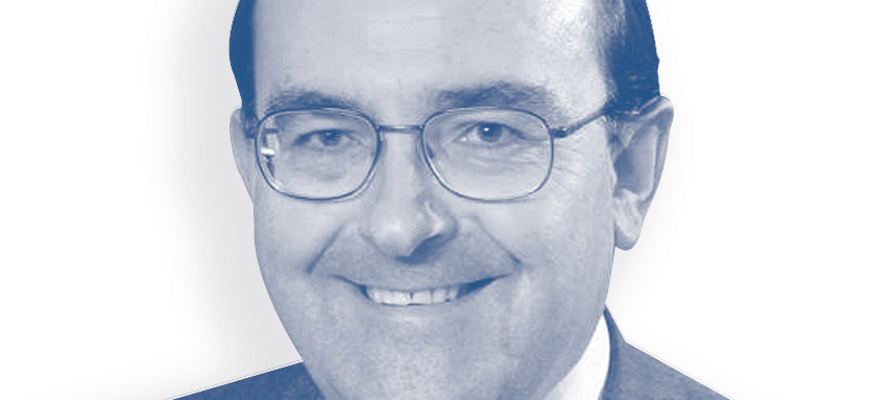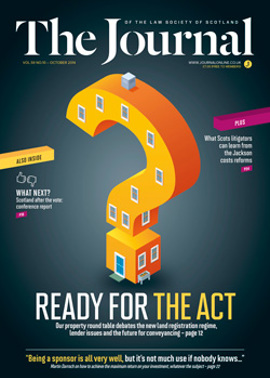When do licensed premises "cease to be used"?

When do licensed premises “cease to be used”?
When I penned my undistinguished pamphlet, How Not to Lose Your Licence, some years ago, I thought I was fairly clear in the various ways a licence could meet its end. Some of these would clearly involve injustice, especially with the arbitrary time limits applied. Five years and two reform Acts later these injustices still apply, and it is a scandal that no steps are proposed to remedy them, and that many owners of licensed premises have had to rely on the goodwill of Scotland’s excellent clerks to secure that this most precious of possessions is still intact. But this article is not about death or insolvency or dissolution of corporate bodies.
To my surprise, s 28(5)(b) of the 2005 Act has come into prominence quite a bit of late. That section provides that a premises licence ceases to have effect where the premises “cease to be used for the sale of alcohol”. With the downturn in the economy, which has hit the licensed trade very hard indeed, there are currently numerous pub and hotel buildings lying empty. I have had many clients who have taken several years to find new occupiers, but have kept the licences alive and paid the annual fees. I now hear of more and more cases where licensing boards are trying to deem that these licences have “ceased to have effect”, in some cases without even a hearing. I have no doubt that this is a misapplication of that section and, in the absence of a hearing, the most flagrant breach of natural justice.
Sensible meaning?
This is a new provision for liquor licensing. Possibly the draftsman was influenced by a betting case in Dundee, where an objector to a new betting office licence sought to pray in aid the fact that that objector (who had vacated the premises) held a betting office licence, ex facie in force, in respect of the same premises. (Bear in mind that it was not possible to transfer a betting office licence.) The court held that that licence must be deemed to have ceased to have effect by virtue of the objector’s having ceased to have any right to occupy the premises.
If one does not look to external factors, it is hard to make a sensible analysis of the subsection. Every set of licensed premises ceases to be used for the sale of alcohol between closing time and the next opening time. A fortiori if the licensee shuts for a holiday or because of illness. And what if the premises close for a few weeks for refurbishment? No one, surely, would argue that the licence terminates in such circumstances. What, then, is the difference if the premises are closed for a time because of economic factors? Had Parliament intended to impose a cutoff time, it could easily have done so. It seems clear therefore that external factors must be considered.
Remember, we are considering only those premises which are closed and where someone has elected to pay the annual renewal fee. Most licensing boards will eventually revoke a licence for non-payment of fees. Payment being made clearly evidences a desire to preserve the licence. Might it be argued that a licensing board which accepts an annual payment is personally barred from revoking it in terms of s 28(5)(b)?
It should also be remembered that in terms of human rights legislation, a licence is a “possession” with various important enshrined protections. It is a very valuable possession. The value of empty licensed premises with the benefit of a premises licence may be manyfold the bricks and mortar value. Any licensing board making threats might be reminded of the size of the damages claim which may await.
Analysis required
In summary, we have another piece of badly drafted legislation coming into focus. In construing it, I believe there should be some analysis done first, and preference given to that analysis which makes sense. All legislation these days has to be “human rights compliant”. Let us assume that the Government didn’t make that fundamental error, and leave the last word to Jack Cummins in his commentary. Exhorting an interpretation which avoids uncertainty, he concludes: “It may therefore be considered that this subsection only applies where licensed premises have de facto been converted to another use.”
In this issue
- Respect revived
- Adoption: when should contact continue?
- Family values
- Designs on IP law
- Section 29 claims, time bar and service
- Sharing the rewards
- Reading for pleasure
- Opinion: Lauren Wood
- Book reviews
- Profile
- President's column
- Making the big changeover
- People on the move
- Another leap forward
- LBTT: aligning payment and registration
- The (legal) people have spoken
- Powers of attorney: another angle
- Greatness begins with a pin badge
- Jackson: has it delivered?
- The test for causing alarm
- When do licensed premises "cease to be used"?
- Empowering communities
- Has clawback lost its tax bite?
- Scottish Solicitors Discipline Tribunal
- Property Law Committee Update
- Call it a comeback
- Refereeing the referendum
- Law reform roundup
- From the Brussels office
- What's next for SYLA?
- Mediation first
- When life begins at 60
- With growth there is risk? (2)
- Ask Ash
- Sustainable future: new ideas for the training contract
- Mentoring - why?
- Lender Exchange: what's it about?
- A bar removed






